How Long Can You Keep a Space Heater Running? (All Types – With Safety Recommendations)
How long can you safely keep them running?
Are some models safer than others?
Understanding the nuances of space heater safety is not just a matter of comfort—it’s a matter of safeguarding your home and loved ones. In this comprehensive guide, we delve deep into the world of space heaters to equip you with evidence-based insights and firsthand expertise.
Our aim?
To ensure that you can bask in the warmth of your space heater with complete peace of mind.
How Long Can You Keep a Space Heater Running – by Type
In this comprehensive guide, we’ll explore various space heater types and provide specific recommendations on how long you can run them.
How Long Can You Keep Electric Convection Space Heaters Running?
Electric convection space heaters are versatile and work by heating the air in a room, providing even warmth.
Here’s how long you can typically run an electric convection heater:
Recommended Usage: Electric convection heaters are generally safe for continuous operation, thanks to built-in safety features like overheat protection. Nevertheless, it’s wise to turn them off when leaving the room or going to sleep to save energy.
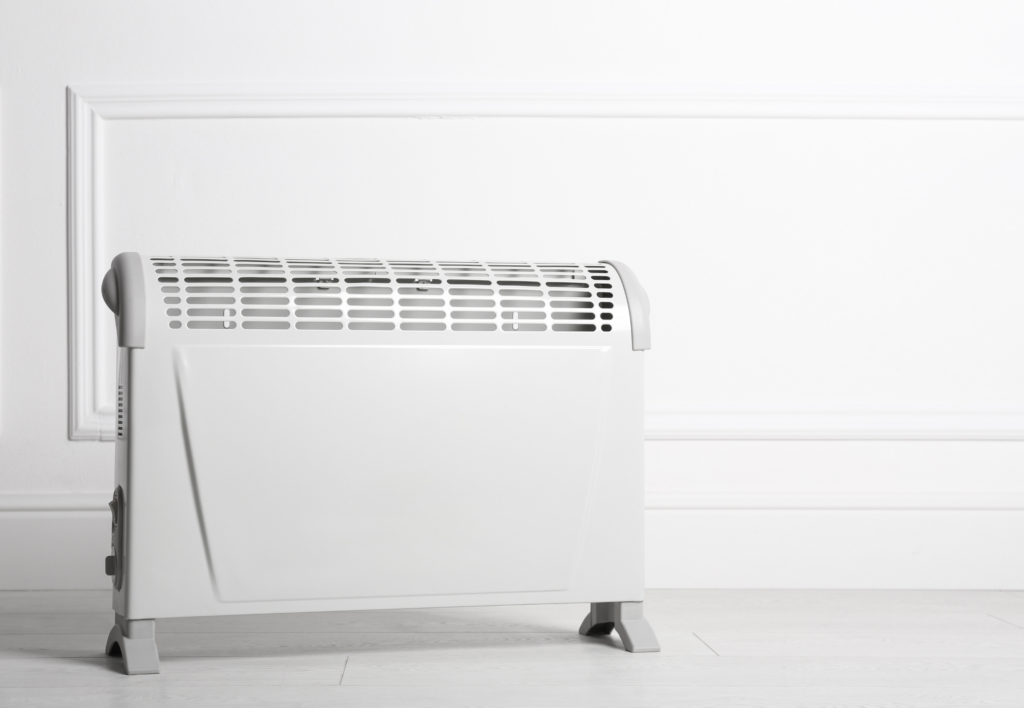
How Long Can You Keep Radiant Space Heaters Running?
Radiant space heaters emit infrared radiation, heating objects and people directly in their line of sight. They are excellent for spot heating. Here’s how long you can safely run a radiant space heater:
Recommended Usage: Radiant space heaters are suitable for short-term heating or providing warmth in specific areas. While they can be used continuously, it’s advisable to turn them off when not needed to prevent energy waste.
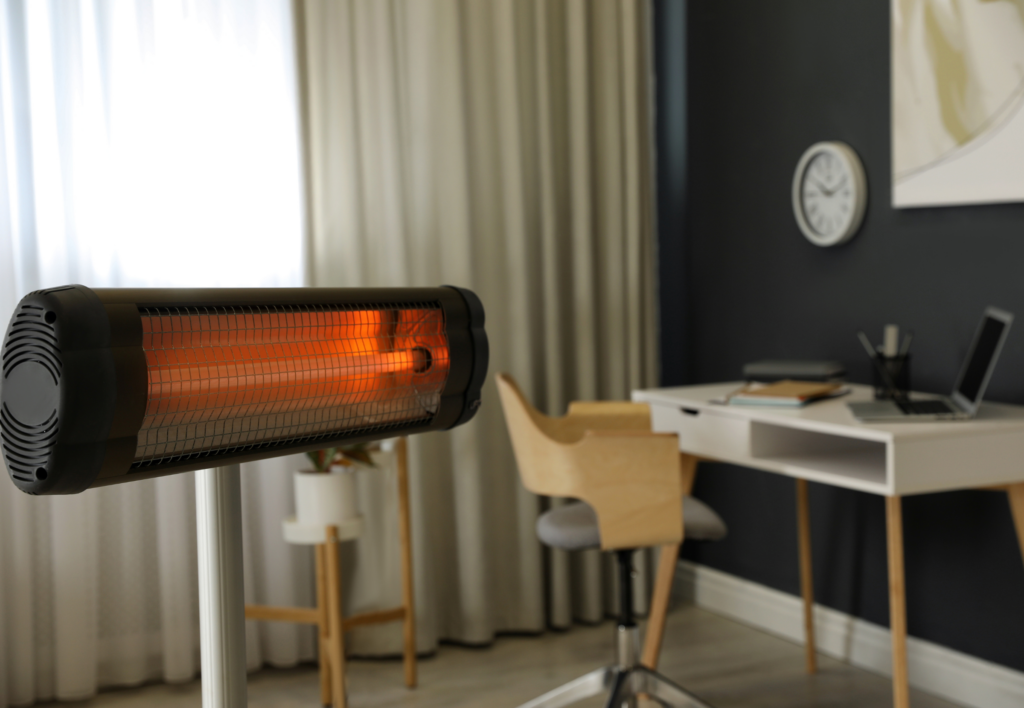
How Long Can You Keep Oil-Filled Radiator Heaters Running?
Oil-filled radiator space heaters are a type of convection heater that uses oil as a heat reservoir, delivering consistent warmth. Here’s how long you can typically run an oil-filled radiator heater:
Recommended Usage: Oil-filled radiator heaters are safe for extended use, but, as with other space heaters, they should not be left unattended for long periods. Turn them off when you’re not in the room or when sleeping to conserve energy.
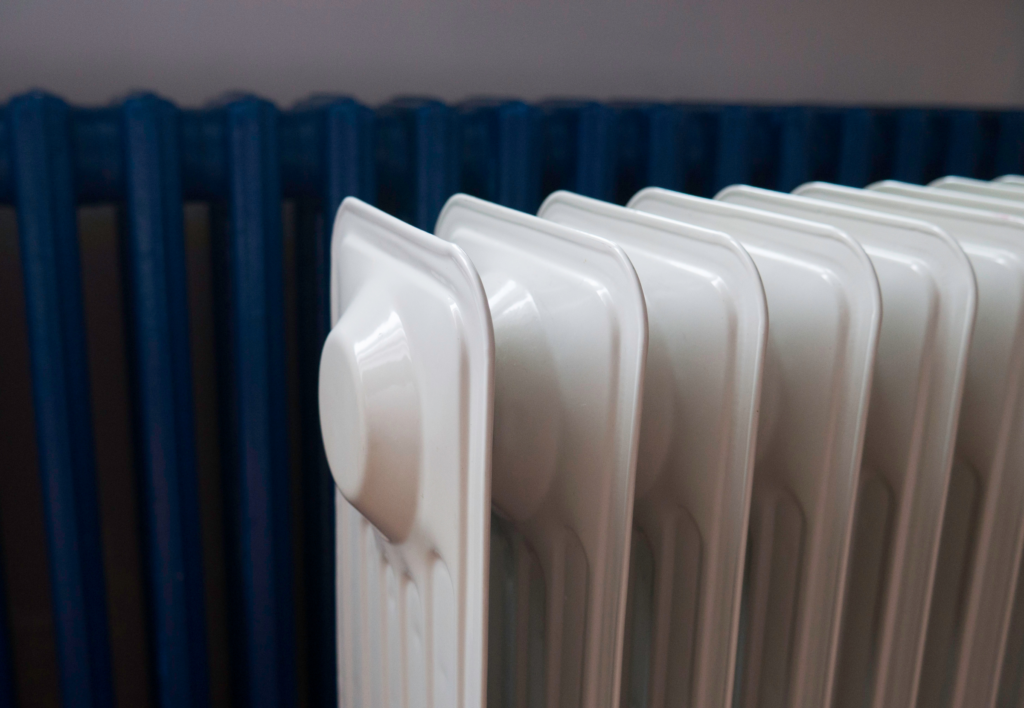
How Long Can You Keep Ceramic Space Heaters Running?
Compact and energy-efficient, ceramic space heaters use ceramic plates to generate heat, often with fans to distribute warmth quickly. Here’s how long you can safely run a ceramic space heater:
Recommended Usage: Ceramic space heaters are suitable for continuous use, provided safety precautions are followed. Turn them off when not needed, and avoid leaving them unattended for extended periods or while sleeping.
How Long Can You Keep Propane and Natural Gas Space Heaters Running?
Propane and natural gas space heaters are commonly used for heating outdoor spaces, workshops, or areas without access to electricity.
Here’s how long you can run these heaters:
Recommended Usage: Propane and natural gas heaters are safe for extended use when operated in well-ventilated areas and maintained properly. However, they should not be used indoors without proper ventilation. Follow manufacturer instructions regarding usage limits and always prioritize safety.
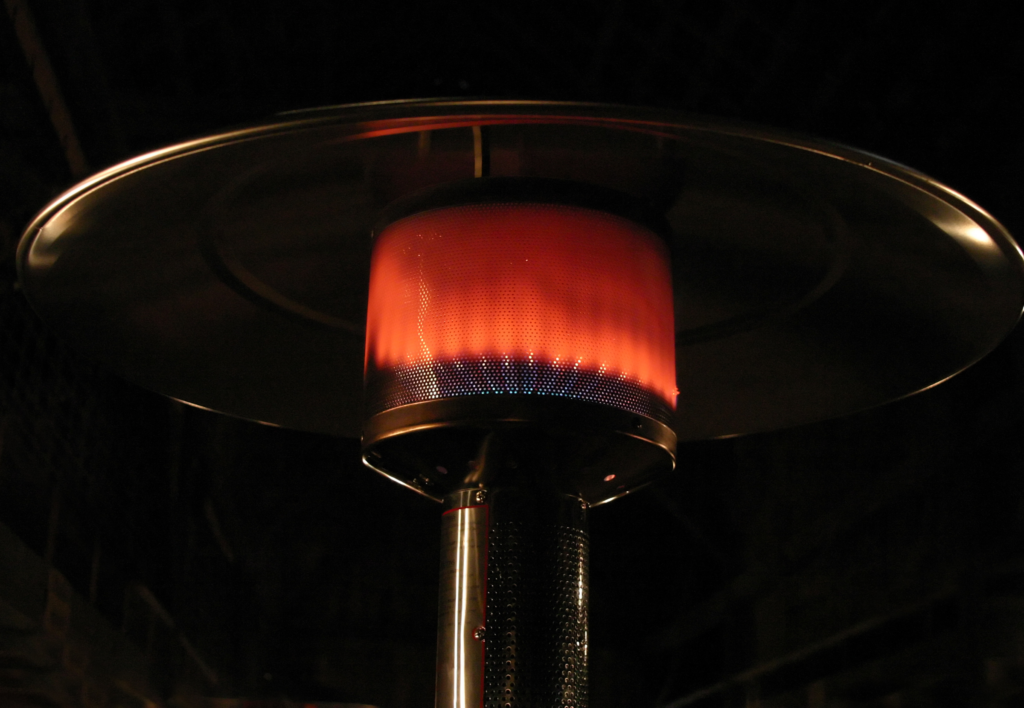
How Long Can You Keep Kerosene Space Heaters Running?
Kerosene space heaters use kerosene fuel for heat generation and are often used in outdoor settings or during power outages. Here’s how long you can safely run a kerosene space heater:
Recommended Usage: Kerosene space heaters are suitable for extended use in well-ventilated areas, but they should never be operated indoors without proper ventilation. Follow manufacturer guidelines and turn them off when not needed.
How Long Can You Keep Wall-Mounted Electric Heaters Running?
Wall-mounted electric heaters are permanently installed and can be an excellent source of supplemental heat. Here’s how long you can typically run a wall-mounted electric heater:
Recommended Usage: Wall-mounted electric heaters are safe for continuous use, but, like other space heaters, it’s essential to practice safety measures. Install them correctly, follow manufacturer guidelines, and turn them off when not needed to save energy.
How Long Can You Keep Micathermic Space Heaters Running?
Micathermic space heaters use a combination of convection and radiant heating elements with micathermic panels. They are known for their quick heat-up times. Here’s how long you can safely run a micathermic space heater:
Recommended Usage: Micathermic space heaters are generally safe for extended use but should not be left unattended for long periods. They are suitable for continuous operation when you’re in the room, but turn them off when not needed.
How Long Can You Keep Fan Space Heaters Running?
Fan space heaters use a fan to distribute warm air quickly. They are compact and efficient. Here’s how long you can typically run a fan space heater:
Recommended Usage: Fan space heaters are suitable for continuous use when you’re in the room. However, turn them off when you leave to save energy and reduce wear and tear on the unit.
How Long Can You Keep Panel Space Heaters Running?
Panel space heaters are slim and wall-mounted, designed for discreet and efficient heating. Here’s how long you can typically run a panel space heater:
Recommended Usage: Panel space heaters are safe for continuous use, provided they are installed correctly and maintained. They are an excellent choice for long-term heating needs in specific areas.
What Do Space Heater Manufacturer’s Say About Leaving Space Heaters On?
Safety Protocols: Manufacturers have conducted extensive tests on their products to determine safe operating durations, conditions, and precautions. Ignoring this information can put you at risk.
Optimal Performance: To get the best out of your space heater, it’s crucial to understand its capabilities and limitations. The manual often provides insights into maximizing efficiency while minimizing wear and tear.
Warranty Protection: Using a space heater in a manner inconsistent with its guidelines might void its warranty. Protect your investment by staying informed.
EXAMPLE Recommendations from Space Heater Manufacturer’s
- Brand A: Recommends that their ceramic heaters be operated for a maximum of 3 hours continuously, followed by a 30-minute break.
- Brand B: Their infrared heaters can run up to 5 hours continuously but suggest turning them off when leaving the room or going to bed.
- Brand C: Advises that its oil-filled radiators are safe for extended use but should be turned off when no one is at home.
(Note: Always refer to the specific guidelines for your heater’s brand and model.)
Remember: While it’s tempting to rely on general advice or personal experiences, the safest route is always to refer back to the manual that came with your device. Manufacturers know their products best.
Safety First: The Risks of Extended Use with Space Heaters
It’s easy to become complacent when a space heater hums away, providing a warm and cozy ambiance. But, with the comfort they bring, it’s essential not to overlook the inherent risks of extended use. Awareness is the first step to prevention, and understanding common space heater hazards can go a long way in ensuring safe practices.
Potential Hazards of Leaving a Space Heater On for Prolonged Periods
- Overheating: Prolonged operation can cause the internal components of the heater to overheat, posing a risk of malfunction or even fire.
- Carbon Monoxide Emissions: Some space heaters, particularly those fueled by kerosene or propane, can produce carbon monoxide if they malfunction or are not adequately ventilated.
- Fire Risk: Space heaters are the second leading cause of house fires. They can ignite nearby flammable materials or malfunction and start a fire.
- Electrical Hazards: If your space heater’s wiring is frayed or if it’s plugged into an overloaded power strip, there’s an elevated risk of electrical fires. This includes a hot plug or melted outlet.
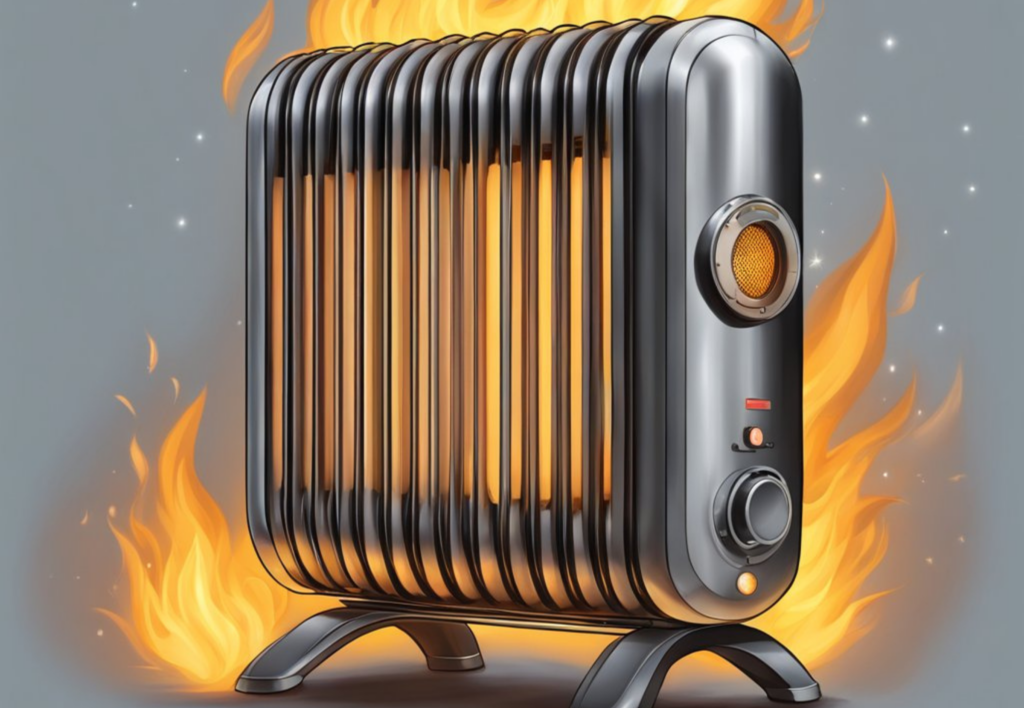
Real-life space Heater Incidents and the Lessons They Teach
- The Case of the Overloaded Outlet: In 2018, a family in Texas lost their home when a space heater, plugged into an overloaded extension cord, caught fire. Lesson: Always plug space heaters directly into wall outlets and avoid using extension cords.
- The Silent Killer: A young couple in Michigan sadly lost their lives in 2020 due to carbon monoxide poisoning from a malfunctioning propane heater. Lesson: Ensure regular maintenance checks, and always equip your home with a functional carbon monoxide detector.
- A Close Call: In Ohio, a woman narrowly escaped harm when her blanket, accidentally left near an active space heater, ignited. Thankfully, a working smoke alarm alerted her in time. Lesson: Always maintain a safe distance between heaters and flammable objects.
In Summary: These incidents underscore the crucial importance of vigilance and safe practices. No matter the brand, model, or type of heater, safety should always be the primary concern.
Major Factors Affecting How Long a Space Heater Can Stay On Safely
The question “How long can you safely leave a space heater on?” isn’t one-size-fits-all. Different heaters have unique specifications, and external factors play a significant role. Let’s break down these influencers:
The Type of Space Heater
- Ceramic Heaters: Ceramic space heaters warm quickly and are ideal for personal spaces or small rooms. They’re generally safe to run for a few hours, but not ideal for extended or overnight use without a thermostat and safety shut-off.
- Infrared Heaters: Emitting infrared light to heat objects directly, infrared space heaters are energy-efficient and can be safely run for longer periods. However, it’s best to give them breaks, especially if they lack automatic shut-off features.
- Oil-filled Heaters: These take longer to heat up but maintain warmth for extended periods. They’re typically safer for prolonged use, thanks to the oil acting as a heat reservoir.
Room Size and Ventilation
- Small Rooms: A smaller room might overheat faster, posing risks. Ensure good ventilation and frequent checks if you’re using a space heater in confined spaces.
- Large Rooms: Larger spaces might require more extended heating durations. Make sure the heater is rated for the room’s size to avoid overworking it.
Presence of Safety Features
- Automatic Shut-offs: Many modern space heaters have this safety feature, which turns the heater off if it reaches a certain temperature or if it tips over.
- Tip-over Protection: Especially crucial for households with pets or children, this feature shuts off the space heater if it gets knocked over.
- Thermostats: A built-in thermostat can regulate the space heater’s operation, ensuring it only runs when needed and reduces the risk of overheating.
The Heater’s Age and Condition
- Older Models: Might lack some of the modern safety features and may not be as efficient, increasing the risk with prolonged use.
- Wear and Tear: Regularly inspect your heater for signs of damage or wear. Frayed cords, malfunctioning controls, or unusual sounds can be indicators that it’s time for a replacement or repair.
To Wrap Up: When determining the safe duration for your space heater’s operation, it’s crucial to consider these factors in conjunction with manufacturer guidelines and expert advice.
Expert Recommendations for Space Heater Safety
Gaining insights from those who know best—fire safety experts and electrical engineers—helps us understand the nuances of safe space heater usage.
Below are some key takeaways from the professionals:
Periodic Breaks are Crucial
- Why It Matters: Even the most robust heaters benefit from regular breaks. Periodic rest periods prevent overheating, reduce the strain on electrical circuits, and prolong the life of the heater.
- Recommendation: For every 2 hours of continuous usage, give the heater a break of at least 15-20 minutes. This can vary based on the heater type and brand, but it’s a general rule of thumb.
Monitor Room Humidity
- Why It Matters: Low humidity can increase the risk of static electricity, which, in extreme cases, can lead to fires. Additionally, dry air can exacerbate respiratory problems.
- Recommendation: Consider using a humidifier alongside your space heater, especially in drier climates or during winter months. Maintaining indoor humidity levels between 30% and 50% is typically recommended.
Avoid Extension Cords
- Why It Matters: Using extension cords with space heaters can increase the risk of overheating or electrical fires. Space heaters draw a significant amount of power, and not all extension cords can handle that load.
- Recommendation: Always plug your space heater directly into a wall outlet. If it’s absolutely necessary to use an extension cord, ensure it’s rated for the heater’s power requirements.
Keep Away from Flammable Materials
- Why It Matters: Proximity to flammable materials like curtains, bedsheets, or wooden furniture can lead to fires.
- Recommendation: Maintain a safety perimeter of at least 3 feet around the heater where no flammable materials are present.
Prioritize Maintenance
- Why It Matters: Regular maintenance ensures the heater functions efficiently and safely. Dust and debris can cause heaters to overheat or malfunction.
- Recommendation: Clean your heater regularly, especially the vents and filters. Check cords for damage and ensure the heater sits stable on the ground.
Understand Your Home’s Electrical Load
- Why It Matters: Overloading circuits can result in blown fuses, tripped breakers, or, in worst cases, electrical fires.
- Recommendation: Be aware of other high-wattage appliances on the same circuit as your heater. If unsure, consult with an electrician.
Myths and Truths About Space Heater Safety
When it comes to space heaters, misconceptions can be dangerous. Let’s debunk some prevalent myths to ensure you’re equipped with the right information.
Myth – “It’s safe if the heater is on a stable surface.”
- Truth: While placing a heater on a stable surface is essential, it’s just one aspect of safety. Factors like proximity to flammable materials, the heater’s duration of operation, and room ventilation also play critical roles.
Myth – “All modern heaters have auto-shutoff.”
- Truth: Not all heaters come equipped with an auto-shutoff feature. Always check the product specifications and don’t assume a safety feature is present.
Myth – “Space heaters don’t consume much electricity.”
- Truth: Space heaters can be energy-intensive, especially when used for prolonged periods. Always check its wattage and consider the implications for your electricity bill.
Myth – “It’s fine to use extension cords with space heaters.”
- Truth: Using extension cords can be a fire hazard. It’s always best to plug the heater directly into the wall outlet.
Myth – “You can leave a space heater on overnight.”
- Truth: Even with safety features, it’s risky to leave a space heater on while you’re sleeping. Potential issues could arise, and it’s better to be awake and alert.
Myth – “Oil-filled heaters can’t start fires because they don’t have exposed elements.”
- Truth: While oil-filled heaters are generally safer as they don’t have exposed heating elements, they can still pose a fire risk if they leak or if something flammable is placed too close.
Myth – “Space heaters can’t overheat.”
- Truth: Any electrical appliance, including space heaters, can overheat if left running for extended periods or if their vents are blocked.
Check Out Our Complete Guide to Space Heaters!
If you enjoyed this post, check out our complete guide to space heaters for more information on space heater types, safety features, troubleshooting common issues, and how to choose the right space heater for your needs!
Let Us Know How We’re Doing!
Did this expertly prepared resource answer your question?
Do you have another question about home maintenance, home improvement projects, home appliance repair, or something else?
Get more information, send in questions and keep the discussion going by contacting the I’ll Just Fix It Myself company customer service team at at 1-800-928-1490 or Email us at [email protected]
